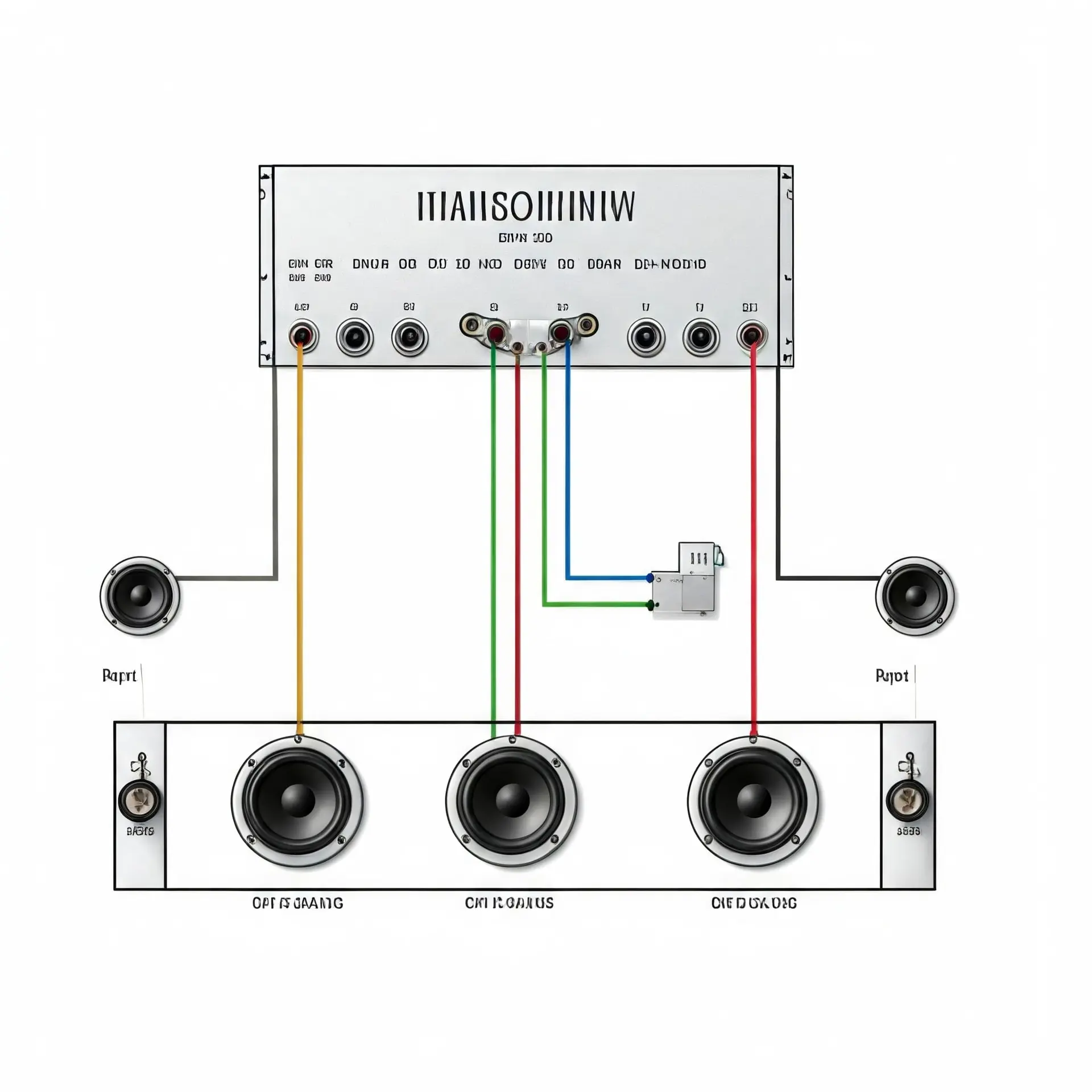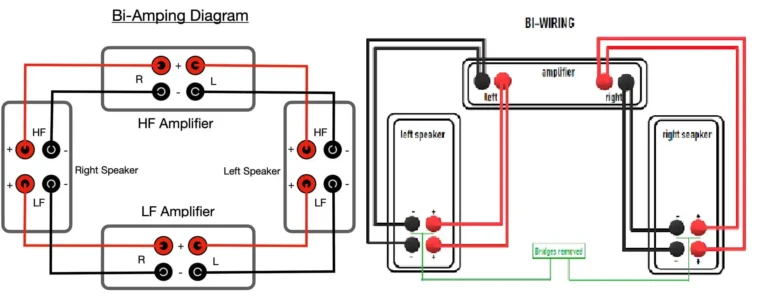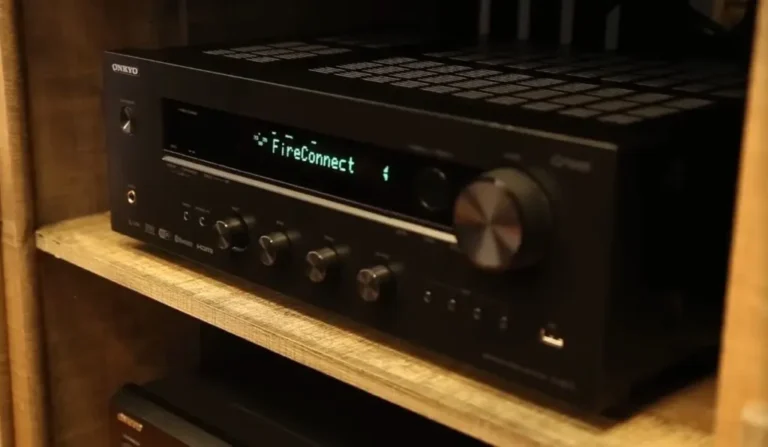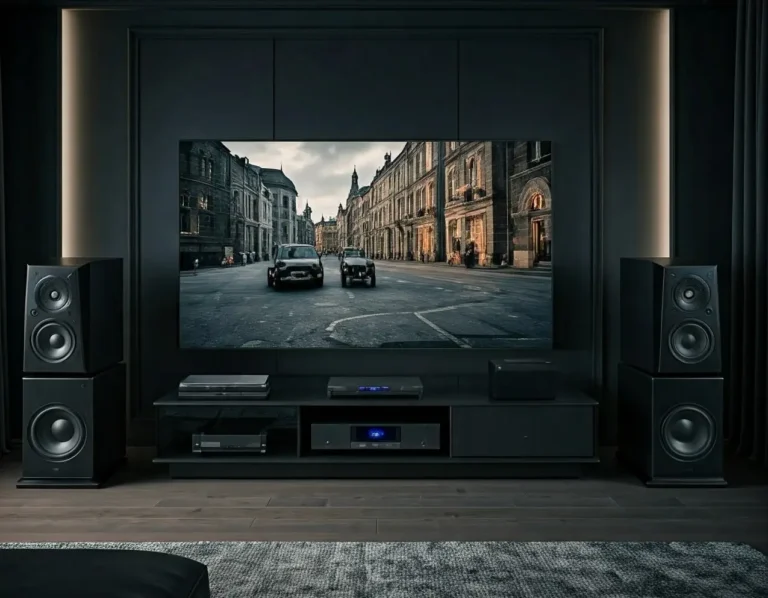How Do You Know If You Need An Amplifier?
Starting your Journey as an audio enthusiast? In the world of audio equipment, amplifiers play a vital role in enhancing sound quality and ensuring that your movies or your favorite songs reach their full potential. But how do you know if you need an amplifier? Let’s get started with some simple points.
First of All, Understanding Amplifiers.
Firstly, let’s understand what an amplifier does. In simple words, or in the short term, an amplifier increases the amplitude of electrical signals, making the audio of your player louder without distorting the original sound. It takes a weak signal from your player, like DVD or Blu-ray, and boosts it to a level that can drive loving speakers or your headphones effectively.
You may like: how to connect 4 speakers to a 2-channel amplifier
Signs You Might Need an Amplifier
- Weak Sound Output: Sometimes, your headphones or speakers might sound duller than expected. This is especially the case if the audio source is not equipped with an amplifier. Having an amplifier can ensure that your audio setup becomes more vivid.
- Distortion at High Volumes: While enjoying Music, boosting the volume may introduce an unwanted level of distortion into the audio. One root cause may include insufficient power being supplied to the speakers. Investing in an amplifier would work as a solution here by providing adequate, unaltered power essential for optimum performance throughout a wide range of volume levels.
- Mismatching of Components: In certain scenarios, external speakers cannot utilize all of the audio signals sent by them because internal sound systems fail to supply enough power due to inherent bandwidth limitations. This issue frequently occurs for high-fidelity headphones and loudspeakers and can be addressed by installing perfectly matched external power amplifiers that provide necessary additional gain without adding extra noise or distortion.
- Desire for Better Sound Quality: A non-ideal sound reproduction is often perceived even when an audio system appears technically balanced and competent, which motivates listeners toward achieving better refinement with signal processing equipment. An intelligent purchase in such situations will guarantee satisfaction thanks to restoration, making listening more interesting through enhanced sonic detail and larger headroom, which improves clarity, coupled with softer distortions during loud passages without losing responsive dynamic range
- Multi-Speaker Setup: If you’re planning to set up a multi-speaker system or a home theater system, an amplifier is essential for driving multiple speakers efficiently. It ensures that each speaker receives enough power to deliver balanced sound across the entire setup.
How to Determine Your Amplifier Needs
- Evaluate Your Current Setup: Take stock of your existing audio equipment, including your source (such as a smartphone, computer, or stereo system) and your speakers or headphones. Assess whether your current setup is meeting your audio quality expectations.
- Research Amplifier Options: Look into different types of amplifiers available in the market, considering factors like power output, compatibility with your audio source, and the impedance of your speakers. Choose an amplifier that matches your specific requirements and budget.
- Consult with Audio Experts: If you’re unsure about whether you need an amplifier or which type would suit your setup best, don’t hesitate to seek advice from audio professionals or enthusiasts. They can provide personalized recommendations based on your needs and preferences.
- Test Before Buying: If possible, test out an amplifier with your existing audio setup before making a purchase. This allows you to experience firsthand how an amplifier can enhance your sound quality and whether it’s worth the investment.
Additional Considerations
- Amplifier Types: There are different types of amplifiers, including integrated amplifiers, stereo amplifiers, and AV receivers. Each type has its features and capabilities, so choose one that aligns with your usage scenario and preferences.
- Room Size and Acoustics: The size and acoustics of your listening room can also influence your amplifier needs. Larger rooms may require more powerful amplifiers to effectively fill the space with sound, while factors like room layout and furniture placement can affect sound quality.
- Future Expandability: Think about your future audio setup plans. If you anticipate adding more speakers or upgrading your audio equipment, choose an amplifier that offers sufficient power and connectivity options to accommodate future expansion.
Conclusion
In closing, it’s easy to notice how an amplifier can improve the audio experience for those who notice some symptoms mentioned above. An informed decision can greatly help in making listening to music, movies, or shows truly enjoyable by tailoring one’s specific audio needs and going through several different options of amplifiers on the market. Gathering more information, such as the type of amplifier needed, room size, speakers, and subs already owned or planned for future purchase, makes choosing an amplifier easier and increases personalization tailored to individual needs.







